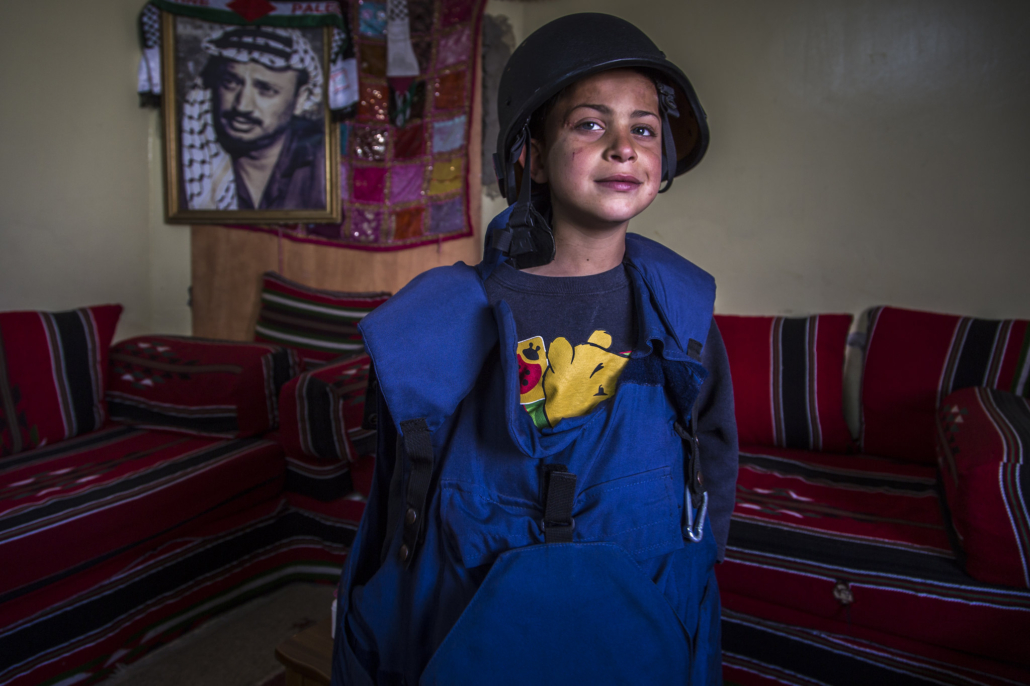The Use of Child Soldiers in Palestine

According to the Defense for Children International Palestine (DCIP), between 2011 and 2020, both Israeli and Palestinian armed groups recruited Palestinian children for use in combat. Israeli forces allegedly recruited Palestinian children, defined as anyone under the age of 18, as informants using torture and other forms of coercion. Israeli troops jailed Palestinian youngsters in Israel and the Occupied Palestinian Territories under military regulations that did not adhere to international norms for treating detainees and juvenile justice. According to reports, the Palestinian Authority hired minors to work in its security forces on non-combat missions. Palestinian armed organizations used children in combat and suicide bombings. Here is some additional information about child soldiers in Palestine.
Recruited Child Soldiers in Palestine
Though there was no proof that Palestinian armed factions who openly opposed using minors in warfare routinely recruited youngsters, many under the age of 18 receive military training. Multiple children become messengers and couriers. Children occasionally deploy suicide bombs and fight in attacks against Israeli soldiers and civilians. Moreover, all major political parties, including Fatah, Hamas, Islamic Jihad and the Popular Front for the Liberation of Palestine, involve youngsters in this way. Between October 2000 and March 2004, at least nine children sacrificed themselves in suicide bombings in Israel and the Occupied Territories. According to Palestinian non-governmental organizations, from September 2000 to March 2004, 30 youngsters actively participating in organized military activity died. Most of the fatalities happened as a consequence of explosive mishaps or during violent encounters with Israeli soldiers.
Youths from the most challenging socioeconomic backgrounds testified that they were freely recruited and often the readiest to participate. It was alleged that children were occasionally used unintentionally or under coercion in attacks. Reports state that armed groups distributed explosives to children. In January 2004, improvised bombs were used in Gaza, where at least three children died and four more became injured.
Jihad and its Influence on Palestinian Children
On numerous instances, Fatah denounced the use of kids in suicide missions. However, its military wing, the al-Aqsa Martyrs’ Brigades, had links to at least four of these operations, involving four young men aged 16-17. Additionally, three 13-15-year-old boys allegedly attempted to attack an Israeli village in March 2004 with the help of Al-Aqsa and Islamic Jihad. Islamic Jihad stated that it opposed the use of children in combat. In April 2002, it said, “We refuse any encouragement given to young people that might drive them to act alone or be pushed by others into action. They are not ready and not able to do so.” Nonetheless, Islamic Jihad was responsible for at least three suicide bombs by 17-year-olds between 2002 and 2004.
Hamas has repeatedly demanded an end to the use of youngsters in violent attacks and suicide missions. In April 2002, Hamas urged schools “to address this issue without sacrificing the enthusiasm or spirit of [the] martyrdom of our youth” and imams “to mention this issue in their sermons.” The Popular Front for the Liberation of Palestine claimed only one child died committing himself to their cause.
The Palestinian Economy Suffers in Poverty
The Palestinian economy faces significant challenges as a result of Israeli limitations on the free flow of people and goods. The unemployment rate in 2012 was 27%, and the latest data indicates that 26% of Palestinians live in poverty. Just one in two teenagers in Gaza, the country’s most impoverished region, had the opportunity to work.
The negative effects of poverty on children’s lives are numerous. For example, because kids frequently drop out of school at a young age to work and support their families, they are usually unable to finish their education. Poverty fuels teenage criminality and early marriages of young girls aged 15-19. In addition, reports of Israeli soldiers killing children have caused rising fear, especially in war-torn places like the Gaza Strip.
Optional Protocol
The Optional Protocol, also known as the Gaza-Israel ceasefire agreements, refers to a series of agreements between the State of Israel and the Palestinian organizations that control the Gaza Strip, including Hamas and Islamic Jihad. These agreements aim to reduce hostilities and end violence between the two sides. The Optional Protocol includes several key elements, including a cessation of rocket attacks from Gaza into Israel and a halt to Israeli airstrikes and ground operations in Gaza. It also endorses the reopening of border crossings. The Palestinian Authority favored the Optional Protocol during the U.N. Special Session on Children in May 2002. It repeated in 2004 that it denounced the exploitation of minors and the targeting of civilians and children by all parties. “Our children should have hope and a future and should not be suicide bombers,” said Palestinian Minister Saeb Erekat. “We want them to be doctors and engineers.”
Looking Ahead
Israeli occupation forces allegedly use Palestinian youths as informants under torture and other types of coercion. Israeli soldiers imprisoned Palestinian children in Israel and the Occupied Palestinian Territories under military rule. The soldiers did not follow standards set forth by the international community for the treatment of detainees and juvenile justice. Through the use of Islamic Jihad, recruiters can compel children to fight for their cause.
A global initiative called PCS Week aims to stop the exploitation of Palestinian children as child soldiers. It is inclusive, political and nonpartisan. The movement seeks to compel and humiliate the guilty groups into stopping their crimes. Causes such as PCS are available to end the use of child soldiers in Palestine, raising awareness of the issue.
– Dalia Hasan
Photo: Flickr
